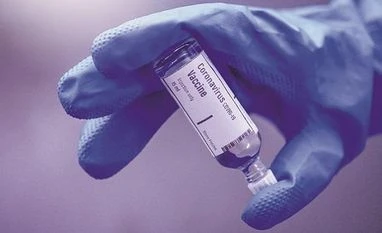(Reuters) - AstraZeneca Plc said on Monday it has begun enrolling adults for a U.S.-funded, 30,000-subject late-stage study of its high profile COVID-19 vaccine candidate.
Trial participants will receive either two doses of the experimental vaccine, dubbed AZD1222, four weeks apart, or a placebo, the company said.
The trial is being conducted under U.S. government's Operation Warp Speed program, which aims to accelerate development, manufacturing and distribution of vaccines and treatments for COVID-19.
U.S. President Donald Trump has said a vaccine for the novel coronavirus could be available before the Nov. 3 presidential election, much sooner than most experts anticipate.
AstraZeneca, which is developing its vaccine in conjunction with Oxford University researchers, and Pfizer Inc with partner BioNTech SE have said they could have data by October to support U.S. emergency use authorization or approval of their respective vaccines.
AZD1222 is already undergoing late-stage clinical trials in Britain, Brazil and South Africa, with additional trials planned in Japan and Russia. The trials, together with the U.S. Phase III study, aim to enroll up to 50,000 participants globally.
More From This Section
The U.S. trial will evaluate whether the vaccine can prevent COVID-19 infection or keep the illness from becoming severe, the National Institutes of Health said in a statement https://www.nih.gov/news-events/news-releases/phase-3-clinical-testing-us-astrazeneca-covid-19-vaccine-candidate-begins.
It also will assess if the vaccine can reduce incidence of emergency department visits due to COVID-19.
(Reporting by Manojna Maddipatla in Bengaluru; Editing by Bill Berkrot)
)